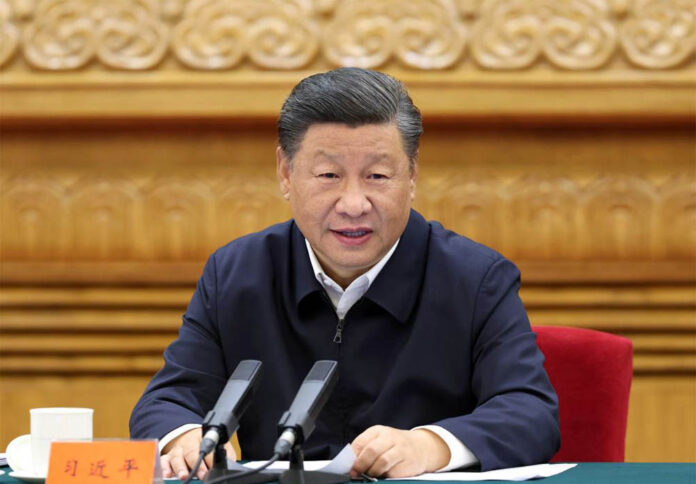
(TibetanReview.net, Aug30’21) – Chinese President Xi Jinping has called for “promoting” the use of standard spoken and written Chinese across the country while “protecting” the spoken and written languages of all ethnic groups, reported China’s official Xinhua news agency Aug 29. This is the policy under which privately run schools in Tibet as well as monastery-run Tibetan classes during school breaks are being forced to shut down while all government-run schools have compulsorily switched to Chinese medium teaching of all subjects.
The occasion was a central conference on ethnic affairs held in Beijing over Aug 27-28, presided over by Premier Li Keqiang, and attended also by Li Zhanshu, Wang Huning, Zhao Leji and Han Zheng, with Wang Yang, China’s top official on ethnic affairs affairs, giving the concluding remarks. In other words, all the seven politburo standing committee members attended the conference, signifying the importance being attached by the central leadership to President Xi Jinping’s renewed Sinicization move in the ethnic minority regions.
The report said Xi called for promoting high-quality development of the Party’s work on ethnic affairs in the new era. The historical position of the Party’s ethnic work in the new era must be understood from the strategic perspective of national rejuvenation, he was cited as saying.
The report said Xi called for promoting the use of standard spoken and written Chinese, protecting the spoken and written languages of all ethnic groups, and respecting and protecting the learning and use of spoken and written languages of ethnic minorities.
But of course, no one has been seen ensuring that the part about “protecting the spoken and written languages of all ethnic groups, and respecting and protecting the learning and use of spoken and written languages of ethnic minorities” is respected, given the stress on the overriding importance of the part about “promoting the use of standard spoken and written Chinese.”
In particular, Xi was reported to have stressed that “ethnic separatism and religious extremism should be continuously eliminated,” while strengthening international anti-terrorism cooperation.
Li Keqiang has said Xi’s speech had “established the guiding principle, strategic goals, major tasks, as well as policies and measures for high-quality development of the Party’s work on ethnic affairs centering on the sense of community for the Chinese nation.”
And in his concluding remarks, Wang Yang has said “Xi’s speech is the latest summary of the practice of the Party’s work on ethnic affairs and the latest achievement in adapting Marxism to the Chinese context.”





